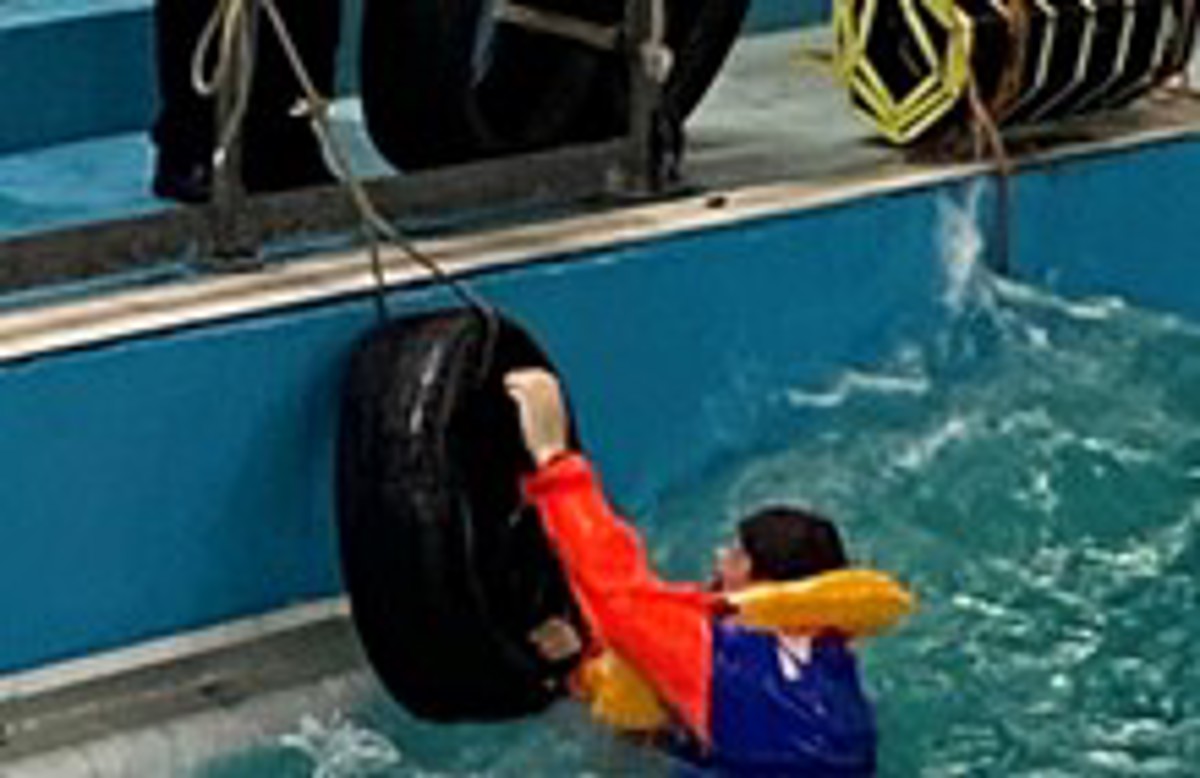Wear a life-jacket!! (MAIB)
- Safety Flash
- Published on 11 August 2021
- Generated on 3 July 2025
- IMCA SF 22/21
- 3 minute read
Jump to:
The UK Marine Accident Investigation Branch (MAIB) has published an instructive and useful account of a recent man overboard exercise, which is summarised below for Members.
What happened?
The MAIB sent an inspector to take part in a man overboard experience exercise held for the fishing community, intended to provide an understanding of what someone falling overboard would experience.
The inspector’s story is found here www.gov.uk/government/news/man-overboard-recovery-and-drowning-prevention. Some bullet points from the story are provided here for members’ discussion:
- Lifejackets: hold an honest conversation about lifejacket use and the perceived issues with wearing lifejackets while working. When we look at the statistics around man overboard incidents and the effects of cold water immersion, some of the reasons given for not wanting to wear lifejackets (like comfort and convenience) are trivial.
- Being in the water with no life-jacket: The MAIB’s correspondent went in the tank and noted “I’ve always thought I was a decent swimmer…I felt OK for the first couple of minutes…but that changed very quickly. As soon as the first significant splash of water went over my face, I started to go downhill rapidly. Every time I tried to calm myself down and get my breathing under control, another wave would hit, and I felt more and more desperate for a decent breath of air. Any rhythm I had with the waves disappeared which then compounded the issue as it seemed every wave was now breaking over my head. The reality dawned on me; I was drowning. I signalled to the lifeguard who rescued me, and when I finally got out of the pool I was completely exhausted. I had been in the wave pool just 5½ minutes.”
- Being in the water with a life-jacket: “When in the pool with the lifejacket on and inflated, I was so much more comfortable. Although I still got the occasional splash over the face, I could float calmly and preserve my energy. What was very noticeable was the difference in comfort and how high my head was above the water when my crotch strap was tightened properly.”
- Once someone is in the water in most cases, they will be unable to help in their own rescue after around 10 minutes due to the effects of immersion in cold water.
- A lifejacket will give time to affect a rescue but only if there is a well-considered recovery system in place which is ready to use. Being well drilled in the use of the recovery equipment is also critical to a successful rescue, as is the ability to raise an alarm, like the use of a personal locator beacon.
- The key piece of safety learning – eliminate the risk of going overboard in the first place! Wear a life-jacket, clip on, don’t fall overboard.
Related Safety Flashes
-
IMCA SF 21/20
13 July 2020
-
-
IMCA SF 20/21
22 July 2021
-
-
IMCA SF 07/21
4 March 2021
-
IMCA SF 03/21
19 January 2021
-
-
IMCA SF 03/20
30 January 2020
-
-
IMCA SF 16/13
17 October 2013
IMCA Safety Flashes summarise key safety matters and incidents, allowing lessons to be more easily learnt for the benefit of the entire offshore industry.
The effectiveness of the IMCA Safety Flash system depends on the industry sharing information and so avoiding repeat incidents. Incidents are classified according to IOGP's Life Saving Rules.
All information is anonymised or sanitised, as appropriate, and warnings for graphic content included where possible.
IMCA makes every effort to ensure both the accuracy and reliability of the information shared, but is not be liable for any guidance and/or recommendation and/or statement herein contained.
The information contained in this document does not fulfil or replace any individual's or Member's legal, regulatory or other duties or obligations in respect of their operations. Individuals and Members remain solely responsible for the safe, lawful and proper conduct of their operations.
Share your safety incidents with IMCA online. Sign-up to receive Safety Flashes straight to your email.
